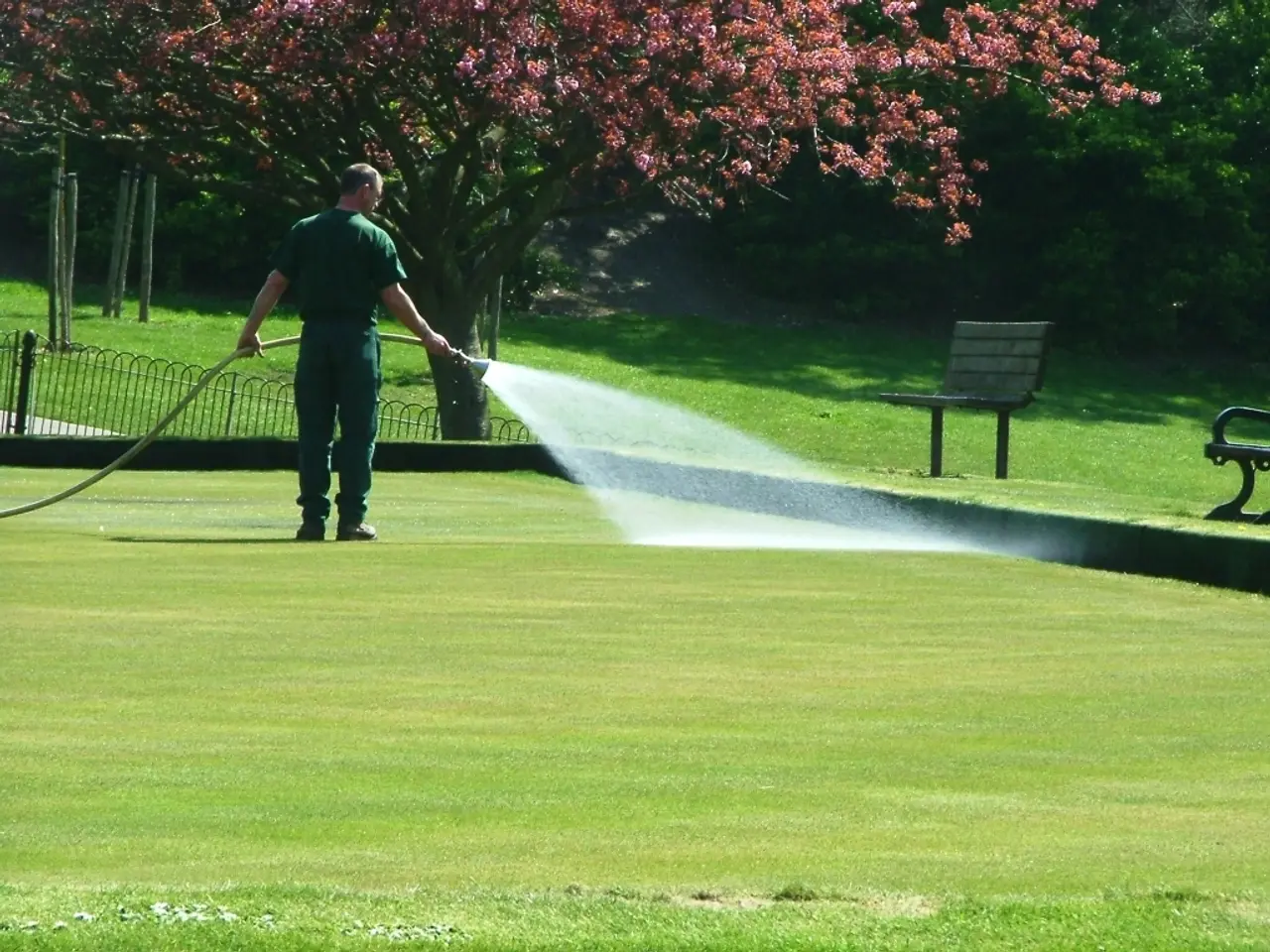Methods for Irrigating Plants During Water Restrictions Due to Hosepipe Bans
During periods of drought or low water supply, water companies in the UK may implement hosepipe bans to help conserve water and support the recovery of reservoirs and groundwater. Here's a breakdown of what you can and cannot do during a hosepipe ban.
Prohibited Activities
During a hosepipe ban, you are not allowed to use a hosepipe for non-essential activities such as:
- Watering gardens or plants on domestic or non-commercial premises
- Using sprinklers or any similar automatic watering systems
- Filling paddling pools, swimming pools, or hot tubs
- Cleaning vehicles, patios, paths, walls, windows, or outdoor surfaces
- Filling or maintaining domestic ponds or ornamental fountains
- Washing private leisure boats
Allowed Activities
Although hosepipes are restricted, there are still some activities that are permitted during a ban. You can:
- Use a watering can or bucket to water plants
- Water crops, recently planted trees, and shrubs, and newly laid lawns
- Use a hosepipe connected to a water butt, well, or borehole
Exemptions
Customers on the Priority Services Register are exempt from hosepipe bans and are allowed to use a hosepipe. Additionally, commercial uses directly related to business operations may also be exempt (e.g., garden centres or commercial car washes).
Alternatives During Drought
If you're experiencing a drought, using a hose connected to a water butt, well, or borehole filled with collected rainwater is an alternative to using a hose connected to a mains water tap. Collecting rainwater for plant watering is an effective method during a drought.
Checking for Hosepipe Bans
Always check with your water company to determine if a hosepipe ban is in effect in your area. The ban typically covers all domestic use of hosepipes but may exclude commercial uses directly related to business operations.
The restrictions are in place until the water companies are satisfied that rainfall has sufficiently replenished supplies. By following these guidelines, you can help reduce water demand and support the recovery of water resources during periods of drought.
[1]: Source 1 [3]: Source 3 [4]: Source 4 [5]: Source 5
- To help conserve water during a hosepipe ban, you can switch from using a hosepipe for gardening or washing outdoor surfaces to employing environmental-science based methods such as watering plants with a watering can or bucket, and collecting rainwater for plant use.
- While gardening, one should avoid watering gardens or plants using sprinklers, sprinkler systems, or filling paddling pools, swimming pools, or hot tubs during a hosepipe ban in order to lessen the impact on the climate-change affected environment.
- On domestic or non-commercial premises, one is prohibited from using hosepipes for lifestyle activities such as washing vehicles, cleaning patios, paths, walls, windows, or outdoor surfaces during a hosepipe ban, but commercial uses such as garden centres are generally exempt from these restrictions.




